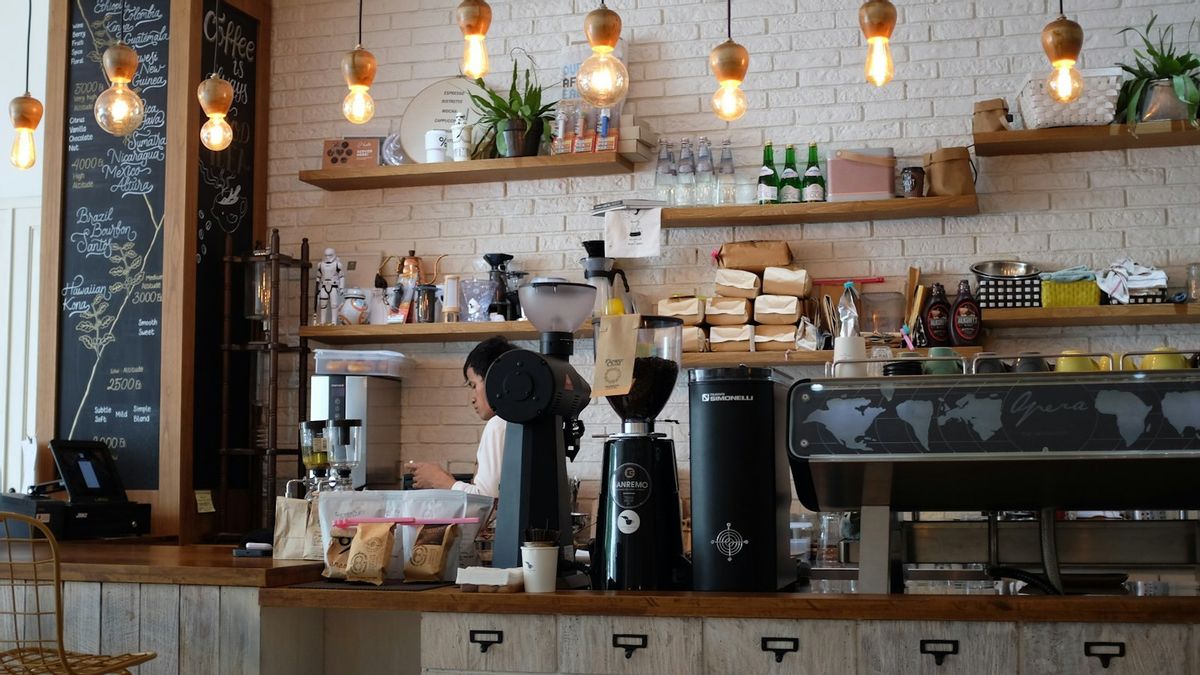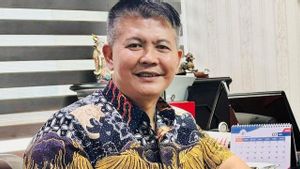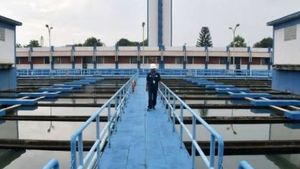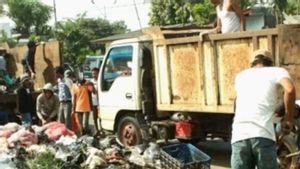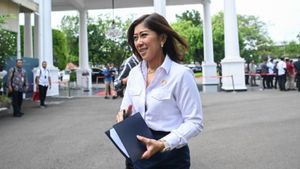JAKARTA - Micro, Small and Medium Enterprises (MSMEs) are the backbone of the Indonesian economy. This is because the contribution can reach 60% of Gross Domestic Product (GDP). However, the problem of raw materials, licensing and market competition is still an obstacle that MSME players often complain about.
All steps and efforts to encourage MSMEs have also been carried out by the DPR. For example, the DPR has encouraged the digital ecosystem to continue to be improved. Spies so that MSME actors can market their products online and have wider market coverage.
The DPR supports the ultra micro ecosystem integration program that involves several SOEs such as Bank Rakyat Indonesia and Pegadaian. This is to help MSME players get access to capital.
The DPR is also trying to strengthen cooperation with various stakeholders, including local governments and the private sector, to create a conducive environment for the growth of MSMEs. In addition, the encouragement for licensing for MSMEs is made easier by the DPR.
Apparently, a number of these obstacles are in line with what the MSME actors feel in the field.
One of them is an MSME actor in the field of child fashion named Rizka Fadillah. Rizka produces doll knits to children's clothes.
Rizka runs this business because he previously had experience as a playgroup teacher. He sees opportunities in this field. However, he was only able to start a small business because the capital was not much.
"Because my capital is not much, starting something big is not possible. That's why it started with this MSME," said Rizka.
He also revealed the obstacles he experienced. One of them is market competition in the online sector. In fact, he must be willing to press profits in order to make his products cheaper.
"Currently the road wants four years. Currently, the challenges are market competition. Mainly when selling online. We don't understand how many people (online) can calculate the selling price is very cheap. There are even products that we have the same price, but we have to press our own profits," he said.
"It's the toughest competition. Maybe we can't compete with prices, but we can compete with quality," he continued.
He also hopes that the DPR will encourage improvements to the training program. He wants the events held by the relevant agencies to be better. This is because most MSME training is only dominated by culinary training.
"To be honest, these events are good, but the training is still dominated by the culinary field. While there are still not many crafts," he said.
Meanwhile, there is also an MSME actor named Mpi Razan. He has been engaged in MSMEs for spice drinks. He revealed that so far the obstacle he felt was the problem of raw materials.
"The price of raw materials, spices, for example, sometimes the price of ginger is sometimes RP 30 thousand, sometimes Rp 40 thousand. Then the price of sugar too. It is volatile," said Razan.
He admitted that he had received assistance from the Chamber of Commerce and Industry to related agencies. He has also received training on branding.
"Ever helped for open booths from the Bogor City Chamber of Commerce and Industry. Then most of the other government assistance, Bogor Creative Center. Bekraf has also helped. So indirectly we are facilitated to receive training, get training on branding," he said.
Razan felt helped by these MSME programs. However, he hopes that the DPR can help improve regulations that are often confusing.
"It's said to help. But only a little complicated thing is about the IMB. So it's confusing in regulations. Because the place to live and the business are different," he said.
Another view regarding the obstacles experienced by MSMEs was conveyed by Rachelthera Triyati. Rachel has a dozen tofu clerics accompanying MSMEs. He is also the General Chair of the Nusantara Ethnic Gallery.
Based on his experience, MSME constraints are always related to persistence. He saw that many MSMEs did not want to make sacrifices first.
"MSME constraints are not loyal, do not want to sacrifice, do not be diligent," he said.
As a result, this condition also has an impact on the difficulty of capital. There is distrust of MSMEs.
"In addition to capital. Because sometimes there are doubts about MSMEs," he said.
For all these obstacles, Rachel hopes that the DPR can encourage improvements to the system. This is because the current system is still making it difficult for MSME players who want to market their products.
"Because of the system, the input of children's products must go through procurement," he said.
Access To Capital To Licensing Needs To Be Improved
Meanwhile, MSME observer Siti Nurjanah explained her views regarding the obstacles that MSMEs often experience. Some of them are like capital problems.
"They have less financial literacy, so they cannot return the capital. So it rotates like that. They are given access to capital and the problem is the same," said Siti Nurjanah.
He also mentioned the issue of licensing. In addition, halal certification and checking product standards for exports also need attention.
"Then the issue of permits, from permits from RT, halal products, or problems when the product must be exported," he said.
"Then the problem with standard products. For example, for honey. It depends on the season. What does this season feel like, it's different. But when exported, they don't have standards," continued Siti.
He hopes that the DPR can encourage the government to continue to conduct MSME training. Of course, he continued, this policy could be carried out in a measured manner.
"The government must also be able to determine who the training targets are, and what the purpose is. When this policy is implemented, this must be measured. For example, what superior regional products do you want to highlight," he said.
The English, Chinese, Japanese, Arabic, and French versions are automatically generated by the AI. So there may still be inaccuracies in translating, please always see Indonesian as our main language. (system supported by DigitalSiber.id)
